Uncategorized
-
 Physics
PhysicsHere’s how to make a fiber-optic cable out of air using a laser
A hollowed-out laser beam heats a tube of air that surrounds cooler air, providing a way to guide light much the way fiber optics do.
-

Seeking the elements that make modern life possible
Editor in chief Nancy Shute discusses the importance of rare earth elements to society.
By Nancy Shute -
 Archaeology
ArchaeologyLasers reveal sites used as the Americas’ oldest known star calendars
By around 3,100 years ago, Mesoamerican ritual complexes tracked celestial cycles using a 260-day count, a huge lidar mapping project shows.
By Bruce Bower -
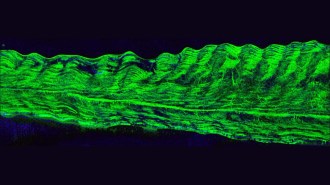 Physics
PhysicsTiny bubbles that make icicles hazy are filled with water, not air
Like tree rings, layers of itty-bitty water pockets also preserve a record of an icicle’s growth.
-
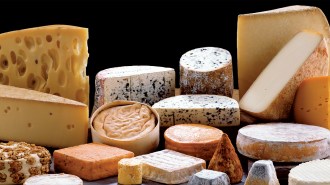 Microbes
MicrobesMeet some of the microbes that give cheeses flavor
Knowing which genus of bacteria is responsible for which flavor could open the door to new types of cheese.
-
 Earth
EarthIndigenous people may have created the Amazon’s ‘dark earth’ on purpose
Modern Amazonians make nutrient-rich soil from ash, food scraps and burns. The soil strongly resembles ancient dark soils found in the region.
By Freda Kreier -
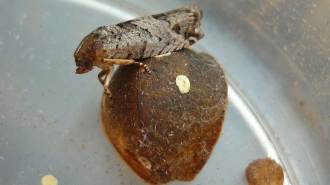 Animals
AnimalsJumping beans’ random strategy always leads to shade — eventually
Jumping beans use randomness to maximize their chances of getting out of the sun’s heat, a new study finds.
-
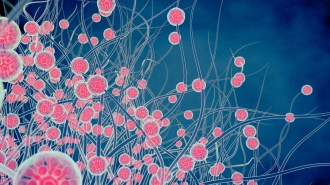 Health & Medicine
Health & MedicineFungi that cause serious lung infections are now found throughout the U.S.
Doctors should be on the lookout for three types of fungi that, when inhaled, can lead to serious infections, researchers say.
-
 Science & Society
Science & SocietyMeet the first Black American to earn an evolutionary biology Ph.D.
In ‘A Voice in the Wilderness,’ Joseph L. Graves Jr. discusses his scientific journey, how he debates racists, and more.
By Susan Milius -
 Physics
PhysicsWe could get messages back from spacecraft sent through a wormhole
A simulation of a probe sent to the other side of a wormhole shows it could send speedy messages back before the hole closes and the probe is lost.
-
 Health & Medicine
Health & MedicineBrain scans suggest the pandemic prematurely aged teens’ brains
A small study suggests that the COVID-19 pandemic may have aged teen brains beyond their years.
By Freda Kreier -
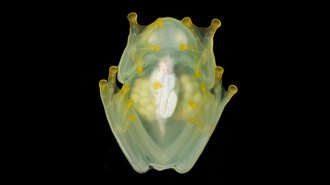 Life
LifeSleeping glass frogs hide by storing most of their blood in their liver
Glass frogs snoozing among leaves blend in by hiding almost all their red blood cells in their liver until the tiny animals wake up.
By Susan Milius